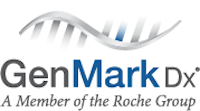With the recent improvements of molecular blood culture identification (BCID) panels, time to pathogen and resistance profile identification generated from a positive blood culture has been drastically reduced. Compared to conventional culture and antibiotic susceptibility testing, this rapid turnaround allows the microbiology lab to deliver results to the clinical teams more efficiently to allow for prompt administration of the correct regimen of antibiotics and antifungals. More specifically when looking at gram-negative (GN) pathogens, organisms harboring extended-spectrum beta-lactamases (ESBL), can be reported within three hours after a blood culture turns positive and the molecular test, inclusive of genotypic resistance genes, such as CTX-M, can be reported out at Northwell Health Laboratories. Until now, the clinical impact remained unclear.
At Northwell Health, an 11 hospital system, a retrospective analysis of adult hospitalized patients with bacteremia due to ESBL producing organisms was conducted to detail pre-implementation of the ePlex® Blood Culture Identification (BCID) Panels (Jan-Sep 2019) versus post-implementation (Jan-Sep 2021). Time to appropriate therapy, total antibiotic use, length of stay, mortality and 30-day readmission were assessed during the study. Out of a total of 503 patient initial encounters, 281 were included after inclusion and exclusion criteria were applied.
In this webinar, Dr. Aya Haghamad, a Pharmacy Advisor at Northwell Health, will highlight the hospital networks experience implementing the ePlex BCID-GN Panel and the outcomes they experienced from a clinical perspective. She will detail the significant improvements in time to appropriate therapy that were observed after the addition of a rapid molecular test for ESBL was instituted in this large hospital network.
Register to learn about the clinical impact of early detection of ESBL bacteremia in hospitalized patients.
Speaker

Aya Haghamad, PharmD, Advisor, Pharmacy, Pathology Informatics
Dr. Aya Haghamad is the Clinical Pharmacist and Pharmacy Advisor with the Pathology Informatics team at Northwell Health Laboratories. In her role, she identifies and operationalizes new opportunities to connect laboratory and pharmacy data and expertise to improve patient care and support operations across the system. During her time at Northwell Health, Dr. Haghamad has led the development of quality metrics to assess inpatient management of bloodstream infections, garnering C-suite level attention. She has piloted an initiative to support nursing homes in fulfilling their antibiotic stewardship requirements as well.
Dr. Haghamad received her BS in biochemistry from SUNY Old Westbury and her Doctor of Pharmacy from The University of Saint Joseph College of Pharmacy. She trained as a Clinical Pharmacy resident at NYU Winthrop Hospital and completed a Translational Medicine/Population Health Fellowship at University of New Mexico and Tricore reference Laboratories.
Who Should Attend?
- Pharmacists
- Physicians
- Infectious Disease Clinicians
- Emergency Department Clinicians
- Laboratory Directors & Managers
- Hospital C-suite
- Nurses
What You Will Learn
Attendees will:
- Gain a deeper understanding of the clinical utility of antimicrobial resistance genes, specifically extended-spectrum beta-lactamase (ESBL) in gram-negative bloodstream infections
- Take a closer look at the improvements that can be made by implementing rapid molecular diagnostics for bloodstream infections
- Dive further into how results from rapid diagnostics for bloodstream infections can impact overall therapeutic interventions in a healthcare system
Xtalks Partner
GenMark Dx, A member of the Roche Group
Roche is a global pioneer in pharmaceuticals and diagnostics focused on advancing science to improve people’s lives. The combined strengths of pharmaceuticals and diagnostics under one roof have made Roche the leader in personalized healthcare – a strategy that aims to fit the right treatment to each patient in the best way possible.
With the addition of the ePlex® System, Roche expands its portfolio to multiplex molecular diagnostic solutions designed to enhance patient care, improve key quality metrics, and reduce the total cost-of-care. ePlex® System, the true sample-to-answer solution, is designed to optimize laboratory efficiency and address a broad range of infectious disease testing needs, including respiratory, bloodstream and gastrointestinal infections with compact, easy-to-use workstations and self-contained test cartridges. The company’s headquarters are located in Carlsbad, CA.
You Must Login To Register for this Free Webinar
Already have an account? LOGIN HERE. If you don’t have an account you need to create a free account.
Create Account

